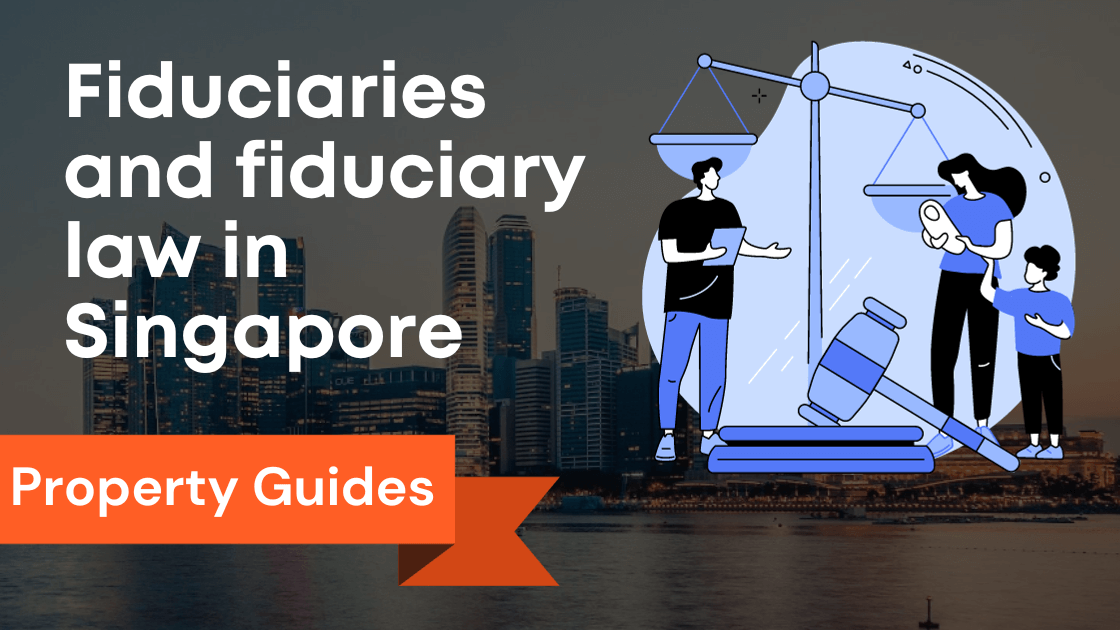What is a kickback?

A kickback, in the context of the United States, refers to the payment made to a prime contractor or an individual in a role of authority in exchange for favorable treatment or the awarding of business contracts.
It is considered a noun and falls under the category of countable nouns.
The term “kickback” first garnered substantial attention during the 1970s when the Anti-Kickback Act was enacted.
This legislation was introduced by the Committee on Government Operations in response to the widespread prevalence of kickbacks in various sectors.
The concept of kickbacks is often discussed in the context of corruption and unethical practices.
The Anti-Kickback Act and the subsequent Anti-Kickback Enforcement Act were put in place to deter and penalize such activities, imposing sanctions against those involved in kickback offenses.
The strong reaction to kickbacks led to numerous kickback investigations and the implementation of stricter regulations.
Detecting kickbacks can be challenging as they often involve secretive transactions.
However, there are common warning signs that can indicate the presence of kickback situations.
These signs include unusually high prices paid for goods or services, subcontractors receiving a large share of the contract price, or contractors employing individuals who are not properly qualified for the job.
Both the Federal Government and private companies must remain vigilant to prevent improper services or commercial bribery.
The issue of kickbacks has been explored in various forms, including literature.
One notable example is the award-winning book that presents the story of subcontractor kickbacks and their impact on different industries.
It sheds light on how kickbacks can affect not only the financial costs of subcontracting but also the overall integrity of the system.
In the world of business and finance, the term “kickback” refers to a form of illicit payment or exchange.
It typically involves a party receiving financial or other benefits in return for providing favorable treatment or business opportunities to another party.
Kickbacks are often seen as a corrupt practice and are illegal in many jurisdictions.
In summary, a kickback refers to an illicit payment made in exchange for favorable treatment or the awarding of contracts.
The Anti-Kickback Act and subsequent legislation aim to combat kickback offenses and enforce stricter regulations against them.
It is crucial to detect and prevent kickbacks to maintain the integrity of business transactions and ensure fair practices in the market.
Definition of a kickback
A kickback can take various forms, such as a bribe, payment, commission, or rebate.
It is usually done covertly and is intended to influence a decision or secure an unfair advantage in a business transaction.
This practice is considered bribery and violates the principles of fair competition and ethical business conduct.
Laws such as the Anti-Kickback Act aim to prevent and penalize kickback activities.
Types of kickbacks
Kickbacks can occur in different industries and sectors.
Some common types include receiving cash or gifts, diverting funds, providing undisclosed discounts or rebates, and even exchanging insider information.
These corrupt practices often result in individuals or organizations gaining personal financial benefits at the expense of others.
Detecting common warning signs such as sudden financial gains, disproportionate commissions, or suspicious relationships can help uncover illegal kickback schemes.
Examples of kickbacks in the real world
There have been several high-profile cases involving kickbacks in various industries.
For example, in the construction industry, subcontractors may offer kickbacks to secure lucrative contracts, diverting a portion of the project’s profits for personal gain.
In healthcare, kickbacks can come in the form of incentives offered to medical professionals in exchange for prescribing certain medications or procedures.
Governments and regulatory bodies often impose sanctions and penalties against those involved in these illegal kickback activities.
https://www.youtube.com/watch?v=GuprkXm1YQE
Kickbacks undermine fair competition, erode trust, and disrupt the integrity of business transactions.
It is crucial for organizations and individuals to adhere to ethical business practices and remain vigilant against corrupt practices like kickbacks.
Key Takeaways
- What is a kickback?
- In business and finance, a kickback refers to an illicit payment or exchange in which one party receives benefits for providing favorable treatment to another party.
- Kickbacks are often seen as a corrupt and illegal practice in many jurisdictions.
- Definition of a kickback:
- Kickbacks can take various forms, such as bribes, payments, commissions, or rebates.
- These are usually done covertly to influence business decisions and are considered bribery.
- Types of kickbacks:
- Kickbacks can occur in different industries and may involve cash, gifts, funds diversion, undisclosed discounts, or exchanging insider information.
- Such practices lead to personal financial gain at the expense of others.
- Examples of kickbacks in the real world:
- High-profile cases in construction, healthcare, and other industries involve kickbacks, where individuals or organizations gain personal benefits through corrupt schemes.
- Laws like the Anti-Kickback Act aim to prevent and penalize such activities.
- How to identify kickbacks – Red flags to look out for:
- Be wary of any form of bribery, unusual contracts, unexplained payments, and close relationships between vendors and decision-makers.
- Kickback schemes often involve overcharging, phantom vendors, or referral fees.
- Tips for avoiding kickbacks:
- Promote transparency in financial transactions to deter kickback schemes.
- Educate employees on identifying and reporting suspicious activities.
- Establish a clear anti-kickback policy and conduct regular audits.
- What to do if you suspect a kickback:
- Report suspected kickbacks to relevant authorities or internal reporting mechanisms.
- Understand the legal consequences of kickbacks and ensure compliance with the law.
- Resources for victims of kickbacks:
- Seek legal advice if you’ve been a victim of a kickback.
- Anti-corruption organizations and agencies provide support for victims to navigate the legal and financial aspects.
- Synonyms and translations for kickback:
- Synonyms include collusion, sum, coercion, FIFA, and money that is paid.
- Translations in different languages describe illegal money received, corrupt practices, and engaging in unethical activities.
- How to use the word “kickback” in a sentence:
- Provide examples of sentences using the term “kickback” to illustrate its usage in various contexts.
How to identify kickbacks

Red flags to look out for
Identifying kickbacks can be crucial to maintaining the integrity of your business.
Here are some red flags to watch out for:
- Bribery: Any form of bribery should raise suspicions. If someone offers you or your employees money or gifts in exchange for preferential treatment, it may be a kickback scheme.
- Unusual contracts: Contracts that appear inflated or overly expensive should be scrutinized. Kickbacks often involve overcharging for goods or services, with the excess funds being funneled back to the kickback recipient.
- Unexplained payments: If you notice unexplained payments to certain individuals or companies, it could be a sign of kickbacks. Investigate any payments that seem suspicious or lack proper documentation.
- Close relationships: Pay attention to relationships between vendors or contractors and employees or decision-makers within your organization. Kickback schemes often involve collusive relationships where kickbacks are exchanged for preferential treatment.
Common kickback schemes
Kickback schemes can take various forms, but some common ones include:
- Overbilling: Vendors may overcharge for goods or services, with a portion of the excess funds being funneled back to the recipient as a kickback.
- Phantom vendors: Fake vendors or companies may be created to issue invoices for goods or services that were never delivered. The kickback recipient then receives payment for these fraudulent invoices.
- Referral fees: In some industries, individuals or companies may offer kickbacks in the form of referral fees for bringing in new clients or businesses.
Tips for avoiding kickbacks
To protect your business from kickbacks, consider the following tips:
- Promote transparency: Implement processes and systems that promote transparency in financial transactions. This can help deter kickback schemes and make them easier to detect.
- Educate and train employees: Provide training to employees about kickback schemes and how to identify and report suspicious activities.
- Establish an anti-kickback policy: Develop and communicate a clear policy that prohibits kickbacks and outlines the consequences for individuals involved in such activities.
- Conduct regular audits: Regularly review financial records and contracts to identify any suspicious or irregular activities.
https://www.youtube.com/watch?v=aWvV5sBVQyM
By staying vigilant and taking proactive measures, you can protect your business from the damaging effects of kickback schemes and maintain your integrity in the marketplace.
What to do if you suspect a kickback

In Singapore, kickbacks refer to corrupt activities in which someone receives illicit income or benefits as a result of a corrupt scheme.
If you suspect a kickback is happening in your organization or any other situation, it is important to take appropriate action.
Here’s what you can do:
How to report a kickback
The first step in dealing with a kickback is to report it.
You can report a kickback by contacting relevant authorities such as the police or the Corrupt Practices Investigation Bureau (CPIB).
Additionally, many organizations have internal reporting mechanisms, such as anonymous hotlines or email channels, where you can report suspected kickbacks.
It is essential to provide as much detailed information as possible to aid investigations.
Legal consequences of kickbacks
Kickbacks are illegal and can have serious legal consequences.
In Singapore, the Prevention of Corruption Act criminalizes corrupt practices, including kickbacks.
Those found guilty of giving or receiving kickbacks can face imprisonment and hefty fines.
The Anti-Kickback Enforcement Act is another legislation that targets kickbacks in certain industries in Singapore.
It is crucial to understand the legal implications of kickbacks and ensure compliance with the law.
Resources for victims of kickbacks
If you have been a victim of a kickback or have suffered financial loss as a result, there are resources available to help you.
You may seek legal advice to understand your rights and explore options for recovering your losses.
Additionally, some anti-corruption organizations and agencies provide support and guidance to victims of kickbacks.
These resources can assist you in navigating the complex legal and financial aspects associated with kickbacks.
In conclusion, if you suspect a kickback, it is vital to report it to the relevant authorities and take legal action.
Understanding the legal consequences of kickbacks and seeking resources for support can help victims in their recovery process.
It is crucial to promote a culture of transparency and ethical business practices to prevent kickbacks and maintain integrity in organizations.
Synonyms and translations for kickback

When it comes to the term “kickback,” there are various synonyms and translations that can help you understand its meaning more clearly.
Synonyms for kickback
Some common synonyms for kickback include collusion, sum, coercion, FIFA, and money that is paid.
These words shed light on different aspects of the concept of kickbacks and can provide a more nuanced understanding of its implications.
Translations of Kickback in different languages
Kickback is a term that exists across different languages.
Translations include phrases that describe money being paid to someone illegally, a person in a position of power receiving illegal kickbacks, and an employee engaging in corrupt practices.
These translations offer insight into how kickbacks are understood and discussed in various cultural contexts.
How to use the word “kickback” in a sentence
To understand how kickback is used in context, consider phrases such as “a person in a position of power or influence receiving a kickback” or “the use of power or influence as payment for certain favors.
“These examples illustrate the nature of kickbacks and how the term is employed in everyday language.
Overall, exploring the synonyms and translations of kickback can enhance your understanding of this complex concept.
It is important to be aware of the various ways kickbacks are represented in different languages and cultures to have a comprehensive understanding of their implications.
Note: This article focuses on the usage and understanding of kickbacks as a term and does not endorse or promote any illegal or unethical activities associated with kickbacks.
How to Browse for Kickbacks

When searching for kickbacks online, there are a few key steps and strategies you can follow to find the best deals and opportunities.
Here’s a helpful guide to get you started.
- Research reputable websites: Begin by looking for trustworthy websites that provide information on kickbacks. These websites often compile various promotions, discounts, and rebates to help consumers save money. Examples include deal aggregator sites, cashback platforms, and coupon websites. Take some time to explore these platforms and find ones that suit your needs.
- Consider your preferences and needs: Determine the specific types of kickbacks you are interested in. Do you prefer cash rewards, discounts, or rebates? Are you looking for specific products or services? Understanding your preferences will help you narrow down your search and find the most relevant kickbacks for you.
- Utilize search engines: Perform targeted searches using specific keywords related to kickbacks. Use terms like “kickbacks Singapore,” “rebates seller,” or “discounts English dictionary” to find relevant results. Refine your search by adding additional details, such as the specific product or service you are interested in.
- Compare offers: Once you have a list of potential kickbacks, take the time to compare offers. Pay attention to the terms and conditions, expiration dates, and any requirements you need to fulfill to receive the benefits. This will help you determine which deals offer the best value for your money.
- Stay cautious: While searching for kickbacks, it’s essential to be mindful of potential scams or fraudulent offers. Always verify the legitimacy of the website or platform before providing any sensitive information. Read reviews and check for customer feedback to ensure you are dealing with reputable sources.
By following these steps, you can navigate the world of kickbacks more effectively and discover fantastic deals that help you save money.
Remember to always prioritize your safety and well-being throughout the browsing process.
Where to find information about kickbacks
When seeking information about kickbacks, there are several sources you can explore.
To start, a broker may provide insights into kickback activities within certain industries, as they often have access to a wide network of professionals.
Additionally, researching purchase transactions and related fraud cases can shed light on kickback schemes that involve multiple parties.
If you are specifically interested in kickbacks related to contract dealings, including city contracts, federal contracts, or contract solicitations, there are dedicated resources available.
Government agencies and websites, such as city or federal contract boards, can provide information on contract-related fraud and the actions taken to combat it.
How to use search engines to find kickbacks
When using search engines to find kickbacks, it is important to approach the topic responsibly and ethically.
Search engines can be useful tools for gathering information about kickbacks, but it is essential to differentiate between legitimate sources and misleading or inaccurate information.
To find reliable information on kickbacks, one should focus on searching for news articles, government reports, or legal documents relating to the topic.
For example, one can search for news articles discussing kickbacks involving a specific governing body or the usage of the word “kickback.
” It is also important to look for examples of kickbacks in real-world situations, such as instances involving an editor, city contract, federal contracts, or contract solicitations.
By staying cautious and verifying the authenticity and credibility of the sources, search engines can be valuable tools in understanding and uncovering information related to kickbacks.
Tips for evaluating the quality of kickback information
When evaluating the quality of kickback information, several tips can help ensure accuracy and reliability.
Firstly, it is important to send feedback to the source of the information, highlighting any concerns or discrepancies.
Additionally, one should pay attention to the phrase “©” or copyright symbol, as this indicates the information has been legally protected and may hold greater credibility.
The reputation and credibility of the organization providing the information should also be considered.
It is advisable to browse multiple sources to validate the information and avoid relying solely on a single source.
Pay attention to the language used, as colloquial English can sometimes indicate a less professional or authoritative source.
For specific financial information, such as allowable costs or cost estimates, it is important to ensure that the information is based on a reliable methodology and is supported by reputable sources.
In the case of cost-reimbursable information, verifying the accuracy of reported costs through documentation and invoices is crucial.
Conclusion
Kickback Singapore Conclusion
In conclusion, the issue of kickbacks in Singapore, as well as globally, is a serious concern that undermines fair business practices and perpetuates corruption.
While the examples presented in this article do not represent the entirety of the issue, they serve as a reminder of the need for vigilance and enforcement to combat this illegal activity.
It is important for individuals and organizations to be aware of the risks associated with kick backs and to take steps to prevent them.
By understanding the consequences of engaging in such practices, businesses can protect their reputation, maintain ethical standards, and avoid legal repercussions.
To further address this issue, whistleblowers and individuals with knowledge of kickbacks must come forward and report the violations to the relevant authorities.
This not only helps in bringing the perpetrators to justice but also strengthens the deterrence against future incidents.
The responsibility to combat kickbacks also lies with governments and law enforcement agencies.
They should continue to prioritize the investigation and prosecution of kickback cases, working collaboratively with international counterparts to combat organized crime and corruption.
Furthermore, organizations and individuals should actively educate themselves and their employees about the laws and regulations related to kickbacks.
By promoting an ethical culture and providing training on how to identify and report suspicious behavior, businesses can reduce the risk of kickbacks and foster a fair business environment.
It is also worth mentioning that the fight against kickbacks requires a multi-stakeholder approach.
Governments, businesses, civil society, and individuals all have a role to play in eradicating this form of corruption.
By working together, sharing information, and supporting initiatives to combat kickbacks, we can create a more transparent and honest business environment.
To contribute to this ongoing discussion, we encourage readers to send us their feedback, experiences, and insights on kickbacks and corruption in Singapore.
By sharing knowledge and raising awareness, we can collectively work towards a society where kickbacks and corrupt practices are not tolerated.
In conclusion, the prevalence of kickbacks in Singapore and globally should not be underestimated.
It is essential for every individual and organization to proactively and adamantly reject engaging in or benefiting from kickbacks.
By upholding ethical standards and promoting transparency, we can contribute to a fair and honest business landscape for the benefit of all.
Frequently Asked Questions
What is the definition of kickback?
It is a type of bribery and is considered illegal.
Can you give an example of a kickback?
Is kickback the same as embezzlement?
Kickback involves an illegal payment made to facilitate a business transaction, while embezzlement is the act of misappropriating funds entrusted to someone’s care.
Where can I find the meaning of kickback?
Do the examples of kickbacks represent the opinion of the organization?
They are simply used to illustrate the concept of kickbacks.
What does a kickback typically contain?
Can kickbacks be expressed in the examples?
How can I send feedback about kickback examples?
What are the consequences of participating in kickback schemes?
It is important to refrain from engaging in such activities.
Can kickbacks be used to buy assets?
For example, an executive receiving kickbacks may use the illicit funds to purchase luxury items or invest in real estate.












